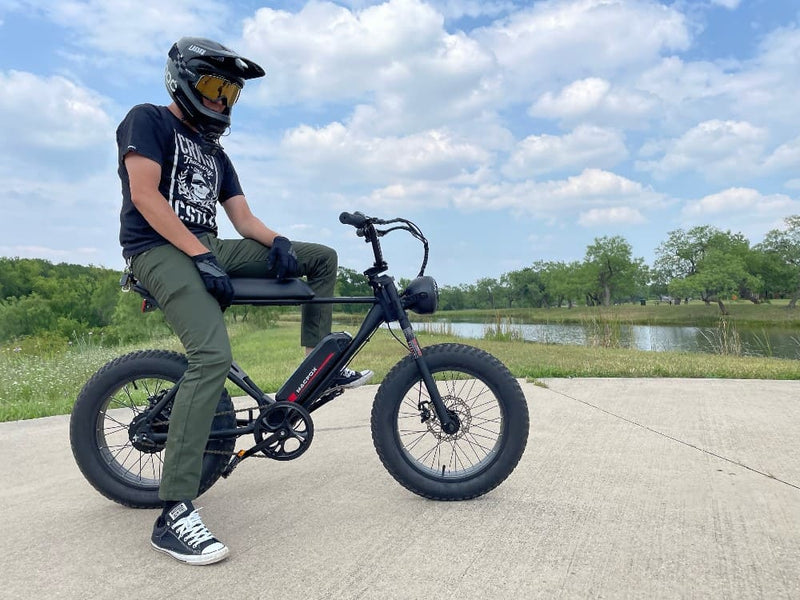Electric bicycles, often referred to as e-bikes, have taken the world of transportation by storm. Their compelling combination of human energy with electric propulsion has made them a sought-after choice for both leisure and commute. In Kansas, as more residents adopt this eco-friendly vehicle, it becomes increasingly crucial to be conversant with the laws and regulations that pertain to their usage. Electric bicycle laws in Kansas not only define the rights and responsibilities of e-bike riders but also lay the groundwork for a harmonious relationship between e-bike riders, motorists, and pedestrians.
Delving Deeper into E-Bike Classifications
Kansas has adopted a systematic approach to classifying e-bikes, ensuring that the power, functionalities, and speed capacities are clearly defined. This clear classification helps in understanding which e-bike is appropriate for a specific purpose and the laws that govern its usage.
Class 1 E-Bikes
Defined as pedal-assist only bikes without a throttle mechanism, Class 1 e-bikes cap their assisted speeds at 20 mph. As the most basic form of e-bikes, they are often the most widely accepted on roads, pathways, and trails designated for traditional bicycles.
Class 2 E-Bikes
Standing apart due to their throttle mechanism, Class 2 e-bikes can reach speeds of 20 mph even without pedaling. Their distinct functionality can sometimes bring about specific restrictions, especially when thinking of shared pathways or trails.
Class 3 E-Bikes
Exclusively pedal-assist like Class 1 but with a higher speed limit, Class 3 e-bikes can dash up to 28 mph. Due to their advanced speed capabilities, they are naturally subject to more stringent guidelines to maintain safety standards on roads and trails.

Guidelines for E-Bike Enthusiasts in Kansas
Age Restrictions: The state of Kansas mandates that any individual wishing to ride an e-bike on public roads should be a minimum of 15 years old. Although the state does not legally require helmets, it's a widely accepted safety practice for riders of all ages.
Bike Paths and Trails: Most bike paths and multi-purpose trails in Kansas welcome e-bike users. But, always be aware of local rules, as some municipalities or park districts may restrict the use of Class 3 e-bikes or e-bikes altogether in certain areas.
Navigating the Roads: Much like their traditional counterparts, e-bikes have the privilege of using the roadways. Given their speed variations, it's prudent for e-bike riders to either utilize dedicated bike lanes or maintain a safe distance towards the edge of the road.
Mandatory and Suggested Equipment: While riding in Kansas, it's a good idea to equip your e-bike with reflectors, a clear-sounding bell, and lights, especially if you plan on nighttime journeys. This gear does more than just ensure the rider's safety; it's about making sure everyone on the road is aware of your presence.
Related Reading: Exploring the Benefits of Macfox Electric Bikes for Urban Living
The Positive Impact of Following E-Bike Laws in Kansas
Adherence to state regulations comes with a range of benefits:
-
Safety First: Compliance with laws and guidelines invariably leads to a safer riding environment, reducing potential accidents and ensuring well-being for all road users.
-
Public Perception: The more e-bike users adhere to state and local rules, the faster the general public will accept and embrace this mode of transport.
-
Green Transport Promotion: If used responsibly and within the confines of the law, e-bikes can be a major contributor to the push for sustainable transport solutions.

In Summary
The revolution of e-bikes is more than just a passing phase. It's a testament to how our transportation methods are evolving to be more sustainable and efficient. By comprehending and respecting the electric bicycle laws in Kansas, riders are not only safeguarding their interests but are also contributing positively to the broader community.
FAQs
Q1: Are helmets mandatory for e-bike riders in Kansas?
While not legally mandated, helmets are strongly recommended for e-bike riders in Kansas for safety reasons.
Q2: Are Class 3 e-bikes allowed on all bike trails in Kansas?
Not always. Some local jurisdictions in Kansas may place restrictions on Class 3 e-bike usage on certain trails or paths.
Q3: What's the minimum permissible age to operate an e-bike in Kansas?
In Kansas, individuals must be at least 15 years old to legally operate an e-bike on public roads.

















